Interviews
None of my demands have been addressed in a meaningful way
Dr Govinda KC has been staging repeated hunger strikes to force the government to introduce reforms in the medical education sector and, of late, to impeach the chief of the Commission for the Investigation of Abuse of Authority (CIAA), Lokman Singh Karki for his meddling in the medical education sector.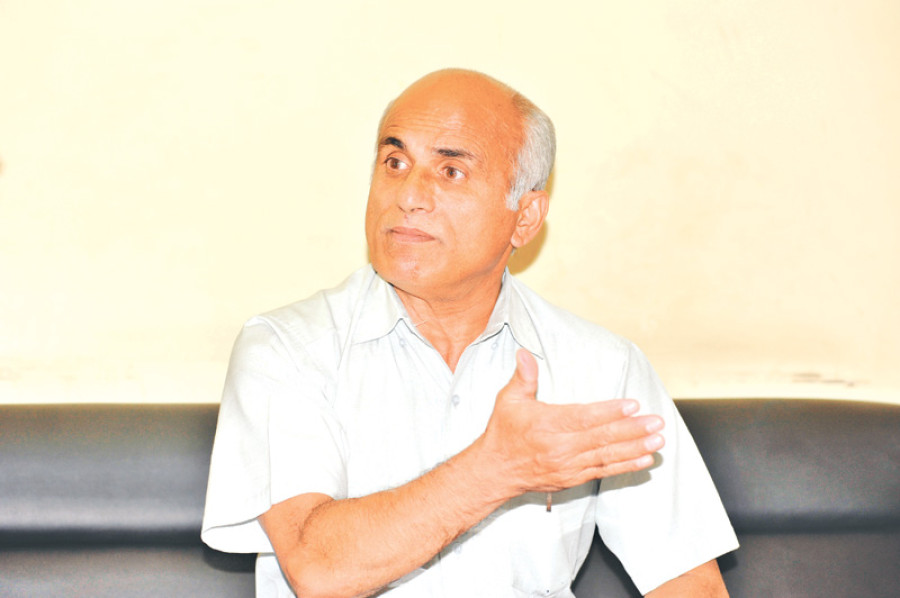
Dr Govinda KC has been staging repeated hunger strikes to force the government to introduce reforms in the medical education sector and, of late, to impeach the chief of the Commission for the Investigation of Abuse of Authority (CIAA), Lokman Singh Karki for his meddling in the medical education sector. Dr KC has been widely praised for his non-violent form of protest and his dogged determination to see through the reforms so that medical education becomes more credible and less expensive, and will lead to better access to quality health care for all citizens. He took on Lokman Singh Karki, which even top political leaders were reluctant to do. An impeachment motion has been finally registered against Karki, though not necessarily to fulfil KC’s demands. Manish Gautam and Shashwat Acharya spoke to KC about his demands, the extent to which his they have been addressed, the criticisms against him and the reasons behind the sorry state of affairs in the country’s health and medical education sectors.
How effective have you found your hunger strikes to be in addressing your demands?
Let me first clarify that it is not a strike—it is satyagraha, or civil disobedience. There have been some achievements. The process of impeachment of the head of the CIAA has begun. The largest party in Parliament, the Nepali Congress, still seems hesitant; it has not come to a decision yet. But I’m sure that the oldest democratic party of the country will eventually support the impeachment motion.
And impeachment alone will not be enough. Action has to be taken against Karki for his wrongdoings. Failure to do so would compel me to continue with my movement, which has widespread support as it is for the welfare of the common citizens.
Do you think that would be necessary though, given the recent
developments?
If the political parties do not show a sense of sensitivity and responsibility and the impeachment motion fails to garner the two-thirds majority required to pass it, I will resume my fast-onto-death. They will then be forced to impeach Karki. So it is better for them to do it now—and convey the message to the people that they are doing it of their own volition—than under compulsion later. Besides, impeachment of the CIAA chief is only one of my demands. My other demands, even ordinary ones, have not been met.
Could you elaborate?
The Health Profession Education Bill concerns not just doctors, but people from the entire health sector. We have been fighting for a long time for the formulation of this Act—and stopping other processes like constructing medical schools and granting them affiliations—before the law is enacted. Successive governments have reached agreements with us, but have not implemented them. I met the prime minister about a month-and-half ago; a couple of days later, he met someone from his party and agreed to provide affiliation through Kathmandu University. I issued a warning, which stopped the process for a while but now they are holding meetings again. The present government is not even showing minimum honesty.
The Mathema Commission had recommended preparing a draft for the Act. The draft committee removed those provisions in the Mathema report that were pro-people and pro-students, and presented it to the Council of Ministers. I had warned them that doing so would be suicidal before I staged my eighth fast-onto-death. But they sent a draft that was pro-politicians and pro-‘mafia’ to Parliament. And about three dozen Members of Parliament have tabled an amendment motion to make the Act even less pro-people. It is clear that the medical mafia is represented by politicians from all the major parties.
The previous dean of the Institute of Medicine (IOM) was unscrupulously removed by the CIAA. There are many adverse impacts if the post remains vacant even for a single day. However, the current vice chancellor, who is a political party cadre, does not appreciate it. I have demanded that the post be filled on the basis of seniority. Any other bases will allow political party figures and middlemen to get appointed. A search committee was formed to appoint the dean. The members of the committee, however, have inadequate knowledge about the IOM. It has been argued that the process is time-consuming. But my experience suggests that processes that lead to a favourable outcome for the medical mafia can be easily expedited. It is a sheer travesty.
The Mathema Committee had also recommended a ceiling on the fees for the MBBS degree. But that was also ignored.
We had demanded the formation of a judicial commission to investigate into various wrongdoings in the medical education sector, and a commission was formed. But the members resigned under pressure from the CIAA.
So none of my demands have been addressed in a meaningful way. As such, I might resume my fast-onto-death at any moment. And I might make additional demands, given that instead of addressing my previous demands, the politicians are creating new problems and challenges.
How, in your opinion, did the medical education sector become such a mess?
It has been almost 27 years since the dawn of democracy in 1990. In all these years, some amount of democratic culture should have been cultivated in the country. What flourished and became institutionalised instead was corruption, impunity, irresponsibility, crime and ‘mafiadom’. The mess in the health and the medical education sectors is a direct result of all this.
The political leaders and the CIAA, which are supposed to ensure good governance, are themselves corrupt. They saw the health and the medical education sectors as a means to make unbridled profits, when the fact is that these sectors are service-oriented, not profit-oriented. These sectors are not commercialised even in the countries with a free market economy. But here in Nepal, whose constitution mentions that it is a socialism-oriented country and where all the major political parties profess faith in either communism or socialism, there is the worst form
of crony capitalism and kleptocracy. It is the political parties that are
supposed to think about and formulate policies for the welfare of the general people, but we are having to do these things.
We will not let this mess continue—even if that means I will have to stage a fast-onto-death another nine times. I might die; I am not afraid of death. But we will not stop short of gaining the right of 30 million Nepalis to have access to quality health care and inexpensive medical education.
What is the basis of your confidence that what you have not been able to achieve from nine fast-onto-deaths, you will achieve from subsequent fast-onto-deaths?
Our fight is not for the interests of a particular group, party or organisation; it is for the interest of the Nepali people. The fight we have waged has faced many obstacles, but at least the Health Profession Education Bill has been tabled in Parliament. If we are successful in making that act people- and student-friendly, it will mark a major milestone in the country’s medical education sector.
How do you justify your fast-onto-deaths, which the critics claim hamper the daily operation of the hospital and inconvenience the public?
I ask the critics how many times the hospital has been closed. We have said from the outset that the services that the hospital provides and the classes run by the IOM will not be discontinued. But if, after my health deteriorates, the public and the students agitate in support of our demands, affecting the services and the classes, it is the result of the government’s
irresponsibility more than ours.
I will offer an analogy. If you are suffering from a serious illness and an injection can cure it, you have to endure the little bit of pain that the injection causes. The people have understood this. Moreover, we have not resorted to methods such as burning tyres on the streets.
Another criticism is that because of the inadequate number of medical schools here, students have started going abroad, even to sub-standard medical institutions. How would you respond?
Quality is more important than quantity, particularly when it comes to services such as medical education and health. When you are sick, do you look for a good doctor or a dubious one? We are fighting for quality, which Nepal lacks.
In Nepal, there are three public medical schools. But there are 17 or 18
private medical schools, many of which lack proper infrastructure. As many as 12 more are in the pipeline to be established in Kathmandu. Politicians have investments or shares in them. I am not saying there should not be more medical schools in the country. But what I am demanding is a law beforehand that ensures fair distribution of them across the country. People from Humla and Siraha should have as much access to quality health care as people from Kathmandu. About three-fourths of the country’s
population lacks access to basic health services.
More than 2,000 medical seats are reserved for students who pay. How many Nepali students can afford millions of rupees to fund their education? Maybe 5 percent. For the rest, the number of seats is between 300 to 350. It should have been the opposite. This shows the massive commercialisation of medical education.
Medical colleges here admit a lot of foreign students—as many as 60 to 70 percent of total students—who can be charged as much as the schools
want. We are fighting for giving priority to Nepali students over foreign ones. If that happens, most Nepali students will no longer need to go abroad to study. Moreover, if the fee ceiling is enforced, medical education here will be a lot more affordable. Many of the Nepali students who go abroad lack qualification and are sent outside by those connected to major political parties, whom I call medical students traffickers.
Finally, do you have political ambitions?
I have none. I love my profession and my social work, and I want to continue doing them. But it is my responsibility as a medical professional as well as a citizen to continue fighting against corruption and wrongdoings in the country.
Specious arguments and criticisms against me and our movement are spread by those who are concerned that addressing our demands will put a stop to their rampant profiteering. They are a ploy to discourage me.
But the more they try to discourage me, the more I will be encouraged to continue fighting.




 8.12°C Kathmandu
8.12°C Kathmandu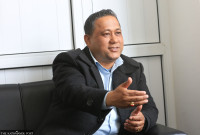

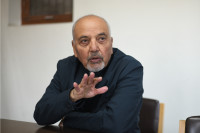
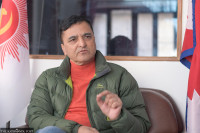
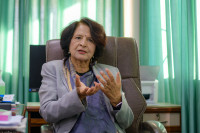
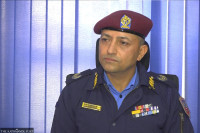
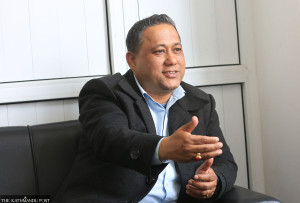



%20(1).jpg&w=300&height=200)

